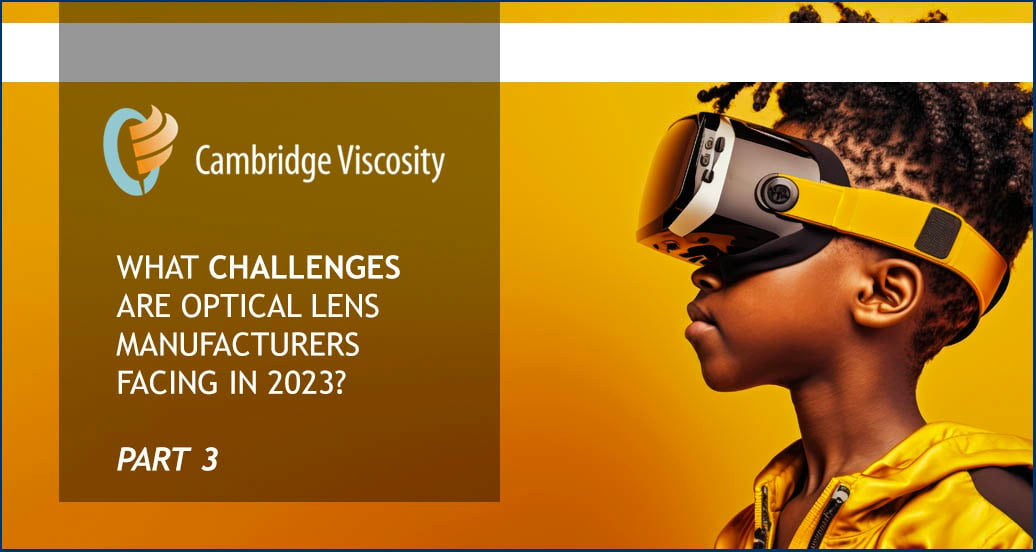We originally wrote this document in 2021 to highlight the challenges that optical manufactures are facing. Now, two years later, Cambridge Viscosity has again looked at the industry and identified some of the most critical challenges faced by optical lens manufacturers.
In this 3-part series, Cambridge Viscosity explores three critical challenges faced by optical lens manufacturers in 2023. You can access the complete pdf here.
PART THREE
 Cambridge Viscosity has identified three critical challenges that complicate the operations of optics manufacturers and threaten their profitability. These challenges are driven by a variety of factors, including changes in market demand, rising costs, and environmental concerns.
Cambridge Viscosity has identified three critical challenges that complicate the operations of optics manufacturers and threaten their profitability. These challenges are driven by a variety of factors, including changes in market demand, rising costs, and environmental concerns.
CHALLENGE #3: Development of New Products Requiring Complex Coatings
The optics industry has been revolutionized by new technologies such as Augmented Reality (AR) and smart goggles. While these technologies have created new opportunities for the industry, they have also presented some challenges.
One of the primary challenges is the need for coatings that can perform multiple functions. AR and smart goggles require coatings that can reduce glare and reflection while still allowing for a clear image to be seen. Additionally, coatings need to be durable and scratch-resistant to withstand the wear and tear of everyday use.
Another challenge is the need for coatings that are compatible with new materials used in AR and smart goggles. For example, many smart goggles are made with materials that are sensitive to heat, which can make it difficult to use traditional coatings that require high temperatures during the application process.
There is also the challenge of maintaining consistency in the coatings used in AR and smart goggles. As these technologies become more mainstream, there will be a need for consistent quality across multiple products and manufacturers. This requires the development of standardized coating processes and quality control measures to ensure that all coatings meet the same standards.
The Role of Viscometers in the Development of Innovative Products
Quality Control
For products like AR and smart goggles, the coatings must be extremely precise and uniform in order to achieve the specific optical properties. By monitoring the viscosity of coating materials, manufacturers reduce the risk of defects and ensure a perfect coating every time.





